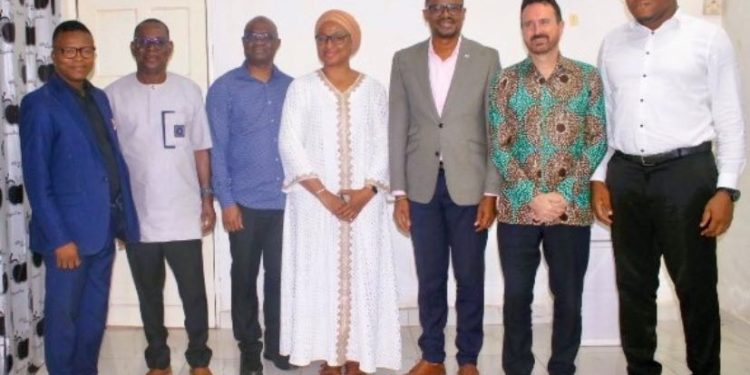Ministry of Technical and Higher Education (MTHE) has convened a high-level strategic dialogue with the “Leh Wi Learn” initiative within the ministerial precincts at Sababu Building, New England Ville.
The deliberations were squarely focused on fortifying Teacher Training Institutions (TTIs) and Technical and Vocational Education and Training (TVET) programs nationwide.
The meeting captured the attendance of the Deputy Minister, the Permanent Secretary, senior directors of MTHE, and a delegation from “Leh Wi Learn,” accompanied by its Ghanaian partner organization, T-TEL.
In his opening remarks, Deputy Minister Sarjoh Aziz Kamara articulated the Ministry’s pivotal mandate in steering technical and higher education, underscoring its commitment to pedagogical excellence and curriculum modernization in support of the Free Quality School Education agenda. He mentioned ongoing transformative reforms, including the comprehensive revision of the University Act, the transformation of polytechnics, and concerted efforts to bolster policy implementation. Mr. Kamara stressed the indispensability of synergistic collaboration with stakeholders, the adoption of contemporary curriculum frameworks, and the imperative of establishing a definitive timeline for these endeavors.
Dr. Mohamed Barrie, Team Lead of “Leh Wi Learn,” explained the critical necessity to bridge extant gaps in teacher training and ensure curricular coherence. He expounded on prospective avenues for collaboration to reinforce TTIs and TVET, drawing instructive parallels from the Ghanaian experience, and proposed the design of a novel program dedicated to augmenting teacher education and institutional capacity-building.
Mr. Robin Todd, Executive Director of T-TEL, imparted invaluable insights from Ghana’s journey in transforming teacher education via the implementation of robust national teacher standards and a revitalized curriculum framework. He underscored the paramount importance of resolute government stewardship, impartial governance architectures, and African-led partnerships to ensure sustainability and countervail transient, donor-driven agendas.
Permanent Secretary Mr. Mohamed Sheick Kargbo centered his intervention on the imperative of pre-service teacher training, highlighting the challenges precipitated by unqualified instructors in technical institutions. He advocated for enhanced coordination across ministries, the Teaching Service Commission (TSC), and school leadership programs, positing that Sierra Leone would benefit from adopting Ghana’s methodology of standardization to navigate analogous obstacles.
Providing contextual foundation, Mrs. Sia Fasuluku, MTHE’s Director of Planning, Research, and Development, recounted how the incumbent administration prioritized education, with a specific emphasis on technical learning. This conviction precipitated the bifurcation of the former Ministry of Education, Science, and Technology into two distinct entities—the Ministry of Basic Education and the Ministry of Technical and Higher Education—a decision propelled by Sierra Leone’s dynamic youth demographic and the pressing need to cultivate a skilled, middle-tier workforce.
Mrs. Fasuluku further delineated reforms enacted under the University Act, which entail the elevation of polytechnics to university status and the consolidation of select institutions. She noted the Ministry’s purview over 13 universities and several pivotal agencies, stressing the profound significance of teacher training, a specialization upheld by six universities under its mandate.
Emmanuel J. Momoh Esq., Director of Higher Education, expounded on the Ministry’s central role in propelling the government’s education agenda through the supervision of tertiary institutions, policy formulation, and enhancing access via technical universities. He cited substantive progress enabled by legislation such as the TEC Act and the NCTVE Act, alongside initiatives for early childhood education. Mr. Momoh affirmed the Ministry’s readiness to forge a strategic partnership with the “Leh Wi Learn” program, emphasizing that collaborative action on curriculum review and stakeholder engagement is fundamental to the realization of national education aspirations.
Credit: Correspondent-Richard Wiliams













